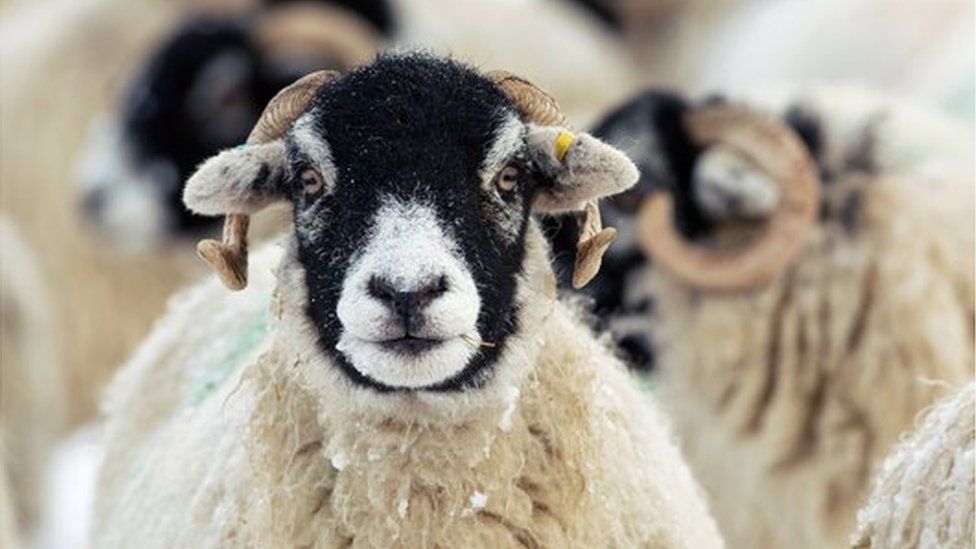Farmers on alert for highly infectious livestock virus
- Published

Farmers are being warned to expect an outbreak of a highly infectious livestock disease known as bluetongue this summer.
The disease, carried by a biting midge, can be fatal to sheep and cows.
The return of the disease to central France last year has led to concerns the virus could spread, particularly to southern England.
Government vets say there is an 80% chance that infected midges will arrive in the UK this summer.
Humans are not affected, but bluetongue has economic impacts for farmers, who can lose livestock and face restrictions on moving animals from farm-to-farm.
Government Deputy Chief Vet Simon Hall said robust disease surveillance measures were in place and the situation in France was being carefully monitored.
''The risk of incursion from infected midges is difficult to predict at this stage because it is highly dependent on the level of disease on the continent, the proximity to the UK and the weather."
He said animal keepers should remain vigilant for signs of the disease and report any suspicions to their vet and the Animal and Plant Health Agency.
Bluetongue facts
- Bluetongue disease affects sheep, cows, goats and wild deer
- The disease is carried and spread by midges
- The main signs of bluetongue in sheep are ulcers in the mouth, discharge, drooling, and swelling of the mouth, head, neck and the coronary band (where the skin of the leg meets the horn of the foot)
- Cattle are the main carriers of bluetongue and can show some of the same symptoms as sheep, but generally do not show any signs of the disease
- Bluetongue is a notifiable disease, and a suspected case must be reported immediately to the Animal and Plant Health Agency (APHA)
Bluetongue is carried and spread by biting midges of a family known as Culicoides.
There is no cure but animals can be vaccinated against the virus.
The British Veterinary Association (BVA) has urged farmers to consider whether to vaccinate their stock.
Prof John Blackwell of the BVA said: ''We'd recommend farmers speak to their local vet about the benefits of vaccination, given their locality and individual circumstances, and especially if farmers have any concerns about their livestock.''
Bluetongue was found in the UK in 2007 as well as in much of northern Europe.
In August 2015 the disease was found on a farm in France - the first outbreak in the EU since 2011.
It has since spread north, raising the risk that infected midges could be blown across the channel and infect flocks and herds in the UK.
Mild weather is a factor, as the virus reproduces better at warmer temperatures.
Any outbreak in the UK is thought most likely to occur in late summer.
- Published13 June 2011